Careers in chemistry

Careers with a Chemistry degree
Guiding our students to successful careers with a Chemistry degree is among our top priorities.
As a Warwick Chemistry graduate, you have many career options. Chemistry is an extremely versatile degree that will allow you to develop a range of practical and theoretical skills highly valued in the world of both work and academia.
Our careers rankings
6th
Most targeted University by UK’s top graduate employers
The Graduate Market in 2024, High Fliers Research Ltd
90%
of our graduates find graduate-level jobs/study within 15 months after graduation
The Guardian University Guide 2025
32nd
in the world for our employer reputation
QS Graduate Employability Rankings 2022
Chemistry Jobs
Examples of future careers our Chemistry degrees will support you to follow, and the transferable skills you will develop:
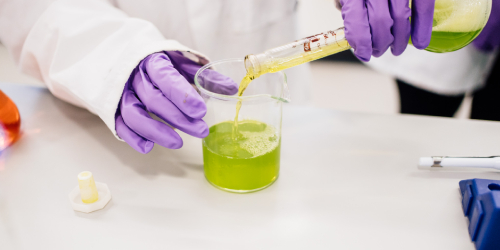
Analytical Chemist
- A good standard of numeracy and skills in data analysis
- Presentation skills and the ability to convey technical information to non-technical people
- Self-confidence and motivation to investigate and solve complex problems
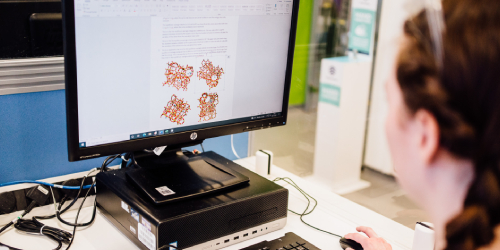
Patent attorney
- An eye for detail and an analytical mind
- An understanding of scientific and technological principles and processes in order to understand the invention yourself and be able to explain it to others
- The ability to structure a precise, coherent argument
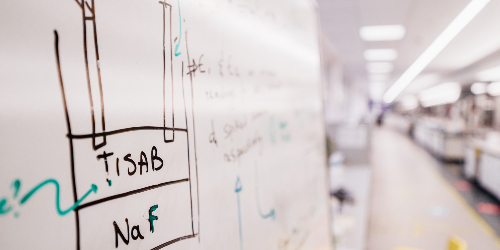
Management consultant
- Creativity and innovation
- Problem-solving and strategic planning ability
- The ability to cope with pressure and challenges
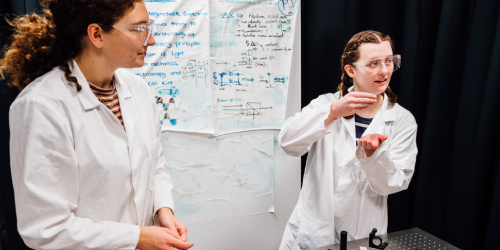
Risk analyst
- A proactive approach to work, in terms of suggesting changes and improvements to processes and systems
- Commercial awareness and the ability to understand broad business issues
- Planning and organisation skills
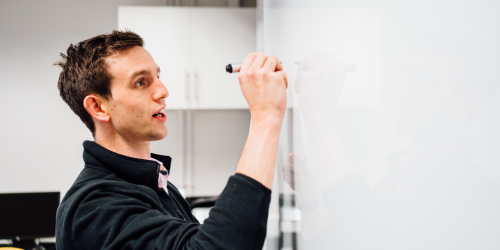
Chemistry teacher
- Energy, resourcefulness, responsibility and patience
- Good judgement and an analytical mind
- Strong organisational and time management skills
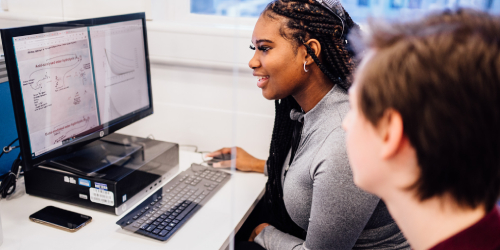
Software developer
- A logical, analytical and creative approach to problems
- An awareness of current issues affecting the industry and its technologies
- Career motivation and a willingness to continue to further your knowledge and skills
Career support
Our visibility in the employment market, alongside the sound practical, theoretical, and communication skills obtained in all of our degrees, means that our graduates are highly valued.
You will benefit from:
- Free careers support from the Student Opportunity Department during your studies and after you graduate
- Opportunities to gain work experience through our Undergraduate Research Support Scheme as well as our industrial and professional experience options during your degree
- Bursaries for summer work experience in a range of sectors
- Opportunities to meet employers from small and large companies
Hear from some of our alumni
Dave Griffin (MChem Chemistry, 1999)
Audit & Assurance Partner at Deloitte
In studying Chemistry, I had a lot of contact hours, and that intensity prepared me for the world of work.
The course at Warwick was very structured, logical and principles-based, and all those things are comparable to working in finance.
As I advanced through my degree, my eyes opened to how much good Chemistry can do for society, and this helped me realise the positive impact I could have on the world around me. I’ve carried that moral compass through to my current work, where I try to help businesses improve every day.


Natasha Boulding (MChem Chemistry with Professional Experience, 2015)
Co-Founder and CEO of Sphera
I’m Co-Founder and CEO of a start-up called Sphera based in Durham, UK. We’re developing a carbon negative lightweight aggregate which utilises waste plastic which would otherwise be incinerated – releasing cast amounts of GHG’s into the atmosphere.
My time at Warwick fostered a sense of curiosity, which is essential to being a scientist – understanding how and why things work in the way they do. From that curiosity, I realised that I wanted to use the skills I’d learned to have a positive impact on the world.
Research undertaken at universities has contributed to significant innovation on climate change already and will play an integral role in doing so in the future, whether that’s developing sustainable materials or new ways to produce energy.
